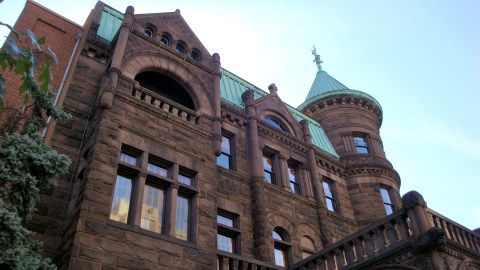This week, global brand strategist Jonathan Salem Baskin contributes the first in a series of visions about the future of museums. His book Histories of Social Media will be coming out later this month. Jonathan connected with me when he wrote this post about how cabinets of curiosity may hold the key to museum futures. Jonathan, a museum enthusiast, was very disappointed not to be selected in the Chicago Museum of Science and Industry’s recent contest to find someone to live in the museum for a month. So if you have an empty diorama case you want to offer him…
I spend my days exploring ways for corporate brands to be more credible, meaningful, and relevant to consumers, and recently it occurred to me that it might be interesting to apply the same analysis to museums. I’ve convinced myself that I’ve seen an alternate future.
First, the caveats: I’m not an expert on museums, just a lifelong fan. No, it’s more than that: I’m kinda nutty about museums…I visit them when I have down time on business trips and I’ve read a lot about how they evolved from the curious collections of fellow nutjobs Athanasius Kircher and P. T. Barnum. My second caveat is that these observations are necessarily as generic as they are uninformed, so bear with me. Maybe these things are already happening and I’m just channeling it.
Here is the first component of my vision of the future of museums:
The Future of Content
The shortage of quality content for which people are willing to pay is as dire in my fantasy as it is in real life. Hollywood studios are signing development deals for movies based on children’s board games such as “Battleship” and “Chutes & Ladders,” and popular books and songs resemble one another evermore closely because it takes too much money and risk to create stuff from scratch, only to hope that people will be interested in it (this is nightmare reality, actually).
Conversely, museums are effectively sitting on infinite, high quality content, much of which is already desired by would-be visitors. In the cases of school-aged children, such knowledge is often required of them.
In my vision, this realization has changed the very premise of purpose for most museums, which have redefined their mandate away from a focus on “education” and back to the principles of entertainment and engagement that drove the curiosity cabinets on which they were once based. They’re less focused on telling people what they should know, and more interested in getting them interested in learning.
In this future, museums become transmedia publishers, recasting their content so, for instance, kids no longer have to wait for a sequel to “Jurassic Park” to get more about dinosaurs…local natural history museums are producing ongoing adventure programs that can be watched online, read about in books, and experienced real-time at their facilities. Art museums offer design services to corporations. Science museums are all over every grade school science fair, and then repurpose the content into webisodes of “Young Scientists.” Science and art history literacy are up, so is museum attendance, and profits, too.
A Vision-Starter
Here is a link that got me thinking:
• Imagine an exhibit conceived somehow like this
Next up, I’ll offer some thoughts on the future of community…









Fantastic post. It was exactly what I was looking for. Nice and concise.
——————————————
alesum